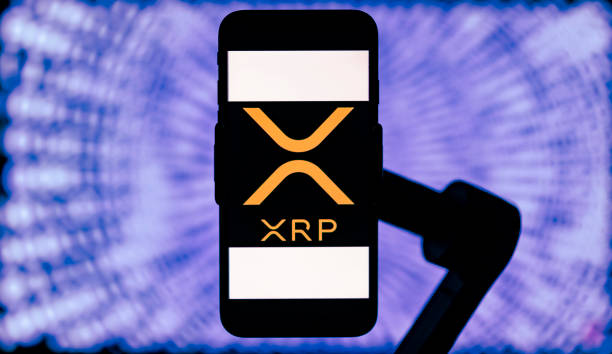Key takeaways
- Peer-to-peer (P2P) car rental services enable direct interactions between car owners and renters, eliminating traditional agencies.
- Blockchain technology introduces enhanced security, transparency and efficiency in P2P car rentals.
- Cryptocurrency payments reduce transaction costs, enable global accessibility, and provide faster payment processing.
- Smart contracts automate rental agreements, ensuring trust and minimizing disputes between parties.
The integration of cryptocurrency into peer-to-peer (P2P) car rental services is introducing a new way for individuals to rent vehicles, with potential improvements in security, transparency and efficiency.
This article explores how to utilize cryptocurrency for P2P car rentals, the benefits involved and the platforms facilitating this innovative approach.
Understanding peer-to-peer (P2P) car rentals
In an age where convenience, cost-efficiency and flexibility are paramount, P2P car rentals have emerged as an attractive alternative to traditional car rental agencies. They empower car owners to monetize their unused vehicles while providing renters with access to a wide range of options, often at more affordable rates than traditional rental companies.
The appeal of P2P car rentals lies in their ability to cater to diverse needs. Whether you are a city dweller needing a car for a quick weekend getaway or a traveler in a foreign country looking for a local, affordable ride, P2P platforms make it easy to find a vehicle that fits your requirements. The model is also sustainable; by encouraging shared use of existing vehicles, it helps reduce the overall demand for new cars, contributing to lower carbon footprints and promoting more efficient resource use.
P2P car rental platforms allow renters and car owners to connect directly, eliminating the layers of bureaucracy, rigid policies and steep fees that come with traditional rental services. This democratization of access reflects how technology is reshaping industries to put control back into the hands of everyday users.
How blockchain is transforming peer-to-peer car rentals
Traditional rental systems often rely on third-party agencies to manage transactions, verify trust, and ensure compliance. However, these intermediaries can introduce inefficiencies, higher costs and occasional disputes. Blockchain technology eliminates this dependency by creating a decentralized, trustless system where car owners and renters interact directly, guided by transparent protocols.
Smart contracts — self-executing programs encoded on the blockchain — streamline the rental process. These contracts automate key aspects of rentals, such as payment transfers, insurance verification and dispute resolution, reducing the likelihood of misunderstandings or fraud.
Adding cryptocurrency into the mix makes this process even more exciting: Crypto payments open doors to a truly global experience.
Imagine you are in Tokyo, planning a scenic drive up Mt. Fuji. With traditional rental companies, you would have to navigate exchange rates, bank fees and a heap of paperwork.
But with a P2P crypto platform, all you need is your digital wallet, a couple of clicks and you are on the road. “Wen Lambo?” Well, now Lambo!

Let’s explore how blockchain is specifically driving changes in the P2P car rental market:
- Decentralizing transactions: Eliminating the need for intermediaries, allowing for direct interactions between car owners and renters.
- Enhancing trust: Providing transparent and immutable records of all transactions and agreements.
- Automating processes: Utilizing smart contracts to streamline operations, reduce administrative overhead, and minimize human error.
- Facilitating crypto payments: Enabling the use of digital assets for payments, catering to a tech-savvy demographic and promoting financial inclusion.
Comparison of traditional vs. crypto-based car rentals
Now let’s understand how traditional car rentals are different from crypto-based ones.

Did you know? Turo, a leading P2P car-sharing platform, raised a whopping $304 million in Series E funding in 2022, bringing its total funding to over $500 million. The company was valued at $1.3 billion, cementing its status as a unicorn. While Turo hasn’t fully adopted blockchain yet, its exploration of decentralized technologies signals a major shift in how car-sharing and cryptocurrency might converge.
Benefits of using cryptocurrency in P2P car rentals
Before diving into the specifics, let’s explore how using cryptocurrency can enhance the P2P car rental experience. Incorporating blockchain technology and crypto payments offers numerous advantages for both car owners and renters.
Key benefits include:
- Enhanced security and transparency: Blockchain’s decentralized ledger records all transactions, providing an immutable and transparent history that reduces fraud and disputes.
- Lower transaction fees: Cryptocurrency transactions often incur lower fees compared to traditional banking systems, making rentals more cost-effective.
- Global accessibility: Cryptocurrencies are not bound by national borders, enabling seamless international transactions without the complications of currency exchange.
- Efficient payment processing: Smart contracts automate payments, ensuring timely and accurate transactions upon fulfillment of rental agreements.
Did you know? In 2021, an exotic car rental service in Miami, MPH Club, made headlines by accepting Bitcoin and other cryptocurrencies as payment for luxury vehicles like Lamborghinis, Ferraris, and Rolls-Royces. A single weekend rental of a Lamborghini Huracán Spyder, costing around $1,500, could be paid entirely in Bitcoin. This integration caters to high-net-worth crypto enthusiasts, blending the allure of digital currency with the thrill of luxury car experiences.
How to rent a P2P car using cryptocurrency
While P2P car renting with cryptocurrency is straightforward, here are some basic steps that will help you:
- Select a crypto-friendly P2P car rental platform: Choose a platform that accepts cryptocurrency payments and operates in your desired location.
- Verify your identity: Complete any necessary identity verification processes and/or Know Your Customer (KYC) as required by the platform to comply with regulatory standards.
- Set up a digital wallet: Ensure you have a cryptocurrency wallet compatible with the platform’s accepted digital currencies, such as Bitcoin (BTC) or Ether (ETH).
- Browse and select a vehicle: Use the platform to find a suitable vehicle that meets your requirements.
- Initiate the rental agreement: Agree to the terms, which are often governed by a smart contract outlining the rental period, payment and other conditions.
- Make the payment: Transfer the agreed-upon amount of cryptocurrency to the designated wallet address provided by the platform.
- Access the vehicle: Follow the platform’s instructions to pick up and use the vehicle for the agreed duration.
Upon completion of the agreement, return the vehicle as per the agreement. The smart contract will release any held funds or security deposits accordingly.
Compliance and dispute resolution in P2P crypto car rentals
When it comes to renting cars using cryptocurrency, compliance and resolving disputes are key factors to keep in mind. Most P2P platforms handle this by using smart contracts, which act as digital agreements between the car owner and the renter. These contracts automate things like payments, rental periods and terms, leaving less room for misunderstandings.
Plus, if disagreements arise — say over damage or late returns — the blockchain’s transparent records can help provide clarity and settle issues fairly.
To stay compliant, many platforms require users to complete identity verification through KYC checks. This ensures accountability for both parties and helps build trust. Some platforms also go a step further by offering arbitration services or blockchain-based tools to resolve disputes quickly and efficiently.
With these measures in place, you can feel more confident navigating the world of crypto car rentals while knowing there’s a system to back you up if something doesn’t go as planned.
Is crypto car rental safe?
Utilizing cryptocurrency for car rentals can be a safe and seamless process if both parties follow best practices. First and foremost, it is essential to engage with reputable platforms that have strong security measures in place and a history of positive user reviews. These platforms provide a reliable foundation for secure transactions and user trust.
Additionally, always verify the details of smart contracts before proceeding. Ensuring that the terms are clear and agreed upon by both parties can prevent misunderstandings or disputes down the line. Protecting your crypto wallet is another crucial step. Safeguard your private keys and use secure wallets to minimize the risk of unauthorized access or theft.
Finally, staying informed about the latest developments in blockchain technology and cryptocurrency regulations will empower you to make well-informed decisions and navigate this emerging space with confidence. By adhering to these practices, users can enjoy the benefits of cryptocurrency-enabled car rentals while ensuring safety and security.
Written by Shailey Sing











